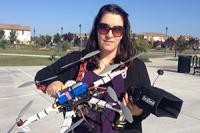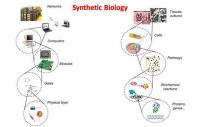-
Will the Supreme Court kill the smart grid?
On 30 April, Tesla’s Elon Musk took the stage in California to introduce the company’s Powerwall battery energy storage system, which he hopes will revolutionize the dormant market for household and utility-scale batteries. A few days later, the Supreme Court announced that it would hear a case during its fall term that could very well determine whether Tesla’s technology gamble succeeds or fails. At issue is an obscure federal policy known in the dry language of the electricity business as “Order 745,” which a lower court vacated last year. Order 745 allowed electricity customers to be paid for reducing electricity usage from the grid — a practice known as “demand response.” It also stipulated that demand response customers would be paid the market price for not using the grid — like the power industry’s version of paying farmers not to grow corn. This case, ultimately, is far more significant than getting paid for not using electricity. It’s about who gets to set the rules of the road for emerging technology in the electricity sector — the states or the federal government — and whether the United States will be able to modernize its energy policy the same way that it would like to modernize its power grid.
-
-
Court allows ads for “The Muslims are coming!' on New York subway
A federal judge las week allowed the posting of light-hearted subway advertisements promoting a documentary about American Muslim comedians, ruling that a transportation agency improperly labeled them political in nature. Judge Colleen McMahon said the advertisements created by two Muslim comedians – one including the line: “The Ugly Truth about Muslims: Muslims have great frittata recipes” — were not primarily political. “That the advertisements at issue gently mock prejudice and employ Islamophobia as a comedic device does not make their message ‘prominently or predominantly’ political,” she wrote.
-
-
Tackling the under-representation of British Muslims in top professions
A new report finds that British Muslims are least likely to hold professional or managerial jobs of any religious group in Britain — at only half the average level (16 to 30 percent) — and that more likely to be unemployed or living in poverty. The report calls for urgent action from government, employers, universities, and within the Muslim community to encourage economic participation and prevent conscious or unconscious discrimination.
-
-
Two new projects tackle e-mail security
In the early, halcyon days of the Internet, researchers were more interested in sharing information rather than securing it. Now, decades later, securing the world’s most widely used medium for business communication is a full-time job for researchers and IT specialists around the globe. The modern working world cannot exist without e-mail, but hackers exploit this vital service to steal money and valuable information. The National Institute of Standards and Technology (NIST) is tackling this threat with two new projects.
-
-
FAA proposes $1.9 million civil penalty for unmanned drone operations

The Federal Aviation Administration (FAA) the other day announced the largest civil penalty the FAA has proposed against a drone operator for endangering the safety of U.S. airspace. The FAA proposes a $1.9 million civil penalty against SkyPan International, Inc. of Chicago. The FAA says that SkyPan conducted sixty-five unauthorized operations in some of the U.S. most congested airspace and heavily populated cities, violating airspace regulations and various operating rules.
-
-
European Court of Justice: U.S. data systems expose users to state surveillance
The European Court of Justice (ECJ) in Luxembourg has ruled that U.S. digital data storage systems fail to provide sufficient privacy from state surveillance. The ECJ declared the American so-called safe harbor scheme “invalid.” The ruling, which is binding on all EU members states, stated that: “The United States … scheme thus enables interference, by United States public authorities, with the fundamental rights of persons…” The ruling will have far-reaching ramifications for the online industry and would likely lead many companies to relocate their operations.
-
-
Price of solar energy in U.S. has fallen to 5¢/kWh on average
Solar energy pricing is at an all-time low, according to a new report. Driven by lower installed costs, improved project performance, and a race to build projects ahead of a reduction in a key federal incentive, utility-scale solar project developers have been negotiating power sales agreements with utilities at prices averaging just 5¢/kWh. These prices reflect receipt of the 30 percent federal investment tax credit, which is scheduled to decline to 10 percent after 2016, and would be higher if not for that incentive. By comparison, average wholesale electricity prices across the United States ranged from 3 to 6 cents/kWh in 2014, depending on the region.
-
-
Bomb detectors fraudster ordered to pay £1.2 million
Gary Bolton, a convicted fraudster who made millions selling fake bomb detectors around the world, has been ordered by a court to pay more than £1 million. In August 2013 Bolton, 49, from Chatham in Kent, was sentenced to seven years in jail for the sale of more than 1,000 useless detectors that he claimed could track down bombs, drugs, ivory, and money. Bolton was one of several defendants convicted for their part in fake bomb detector scams. In 2013, James McCormick, a British businessman, was convicted of having made millions in profits from selling fake bomb detectors to Iraq, Georgia, and several other countries.
-
-
Recovering rare earth materials from electric and hybrid vehicle motors
China currently supplies about 97 percent of rare earth materials used in manufacturing around the world. In an effort to help develop a sustainable domestic supply of rare earth elements and lessen the U.S. dependence on China for materials that are vital to the production of electronics, wind turbines, and many other technologies, researchers have developed a method of extracting rare earths from the drive units and motors of discarded electric and hybrid cars.
-
-
Cybersecurity company licenses ORNL’s Data Diode
Data Diode, developed by ORNL’s researchers, uses a defense-in-depth computer network strategy to create an environment in which an organization’s approved users can work freely inside an enclave of protected data but restricts file transfers outside the network. Lock Data Solutions has licensed a technology from ORNL. The technology is designed to protect a company’s data from internal and external threats.
-
-
DHS recruits Silicon Valley entrepreneurs to develop first-response technology
DHS wants better technology for first responders — police, firefighters, and EMTs — but rather than pushing for innovation from within the massive corporations that already provide technology to government agencies, the DHS has come to Silicon Valley to tap the entrepreneurial ecosystem of northern California. Giant technology firms have resources of large scale manufacturing and distribution, but there is one crucial difference. Technology startups are much more nimble, and can shift their development much faster than the huge corporations can.
-
-
A first: Anti-fraud system to use existing credit card readers

From large-scale data breaches such as the 2013 Target case to local schemes that use skimming devices to steal data at the gas pump, credit card fraud is becoming commonplace. Because existing magnetic card readers use plain text to store confidential information, they are vulnerable to an untrusted card reader or skimming device. Analysts estimate that this vulnerability is adding up to $8 billion in incurred losses per year in the United States. For the first time, researchers have developed an inexpensive, secure method to prevent mass credit card fraud using existing magnetic card readers.
-
-
U.S. defense agencies dominate federal synthetic biology research

A new analysis finds the Defense Department and its Defense Advanced Research Projects Agency (DARPA) fund much of the U.S. government’s research in synthetic biology, with less than 1 percent of total federal funding going to risk research. Between 2008 and 2014, the United States invested approximately $820 million dollars in synthetic biology research. In that time period, the Defense Department became a key funder of synthetic biology research. DARPA’s investments, for example, increased from near zero in 2010 to more than $100 million in 2014 — more than three times the amount spent by the National Science Foundation (NSF).
-
-
Rather food versus fuel, think in terms of both food and fuel

Whether you have taken a side or a backseat in the discussion, the “food versus fuel” debate affects us all. Some say growing more biofuel crops today will decrease greenhouse gas emissions, but will make it harder to produce food tomorrow, which has prevented the United States from maximizing the potential of environmentally beneficial biofuels. Scientists argue that farmers can sustainably, and affordably, meet humanity’s growing demand for food and fuel.
-
-
Beyond data theft: Next phase of cyber intrusions will include destruction, manipulation of data
James Clapper, director of U.S. intelligence, and other senior intelligence officers, have warned Congress that the next phase of escalating online data theft will likely involve the manipulation of digital information. Clapper on Wednesday told lawmakers on the House Intelligence Committee that a “cyber Armageddon,” in which a digitally triggered damage to physical infrastructure results in a series of catastrophic events, is less likely than “cyber operations that will change or manipulate data.” Leaders of the U.S. intelligence community told lawmakers that the manipulation or destruction of data would undermine confidence in data stored on or accessible through U.S. networks, engendering an uncertainty which could jeopardize U.S. military situational awareness and undermine business activity.
-
More headlines
The long view
Factories First: Winning the Drone War Before It Starts
Wars are won by factories before they are won on the battlefield,Martin C. Feldmann writes, noting that the United States lacks the manufacturing depth for the coming drone age. Rectifying this situation “will take far more than procurement tweaks,” Feldmann writes. “It demands a national-level, wartime-scale industrial mobilization.”
Trump Is Fast-Tracking New Coal Mines — Even When They Don’t Make Economic Sense
In Appalachian Tennessee, mines shut down and couldn’t pay their debts. Now a new one is opening under the guise of an “energy emergency.”
Smaller Nuclear Reactors Spark Renewed Interest in a Once-Shunned Energy Source
In the past two years, half the states have taken action to promote nuclear power, from creating nuclear task forces to integrating nuclear into long-term energy plans.
